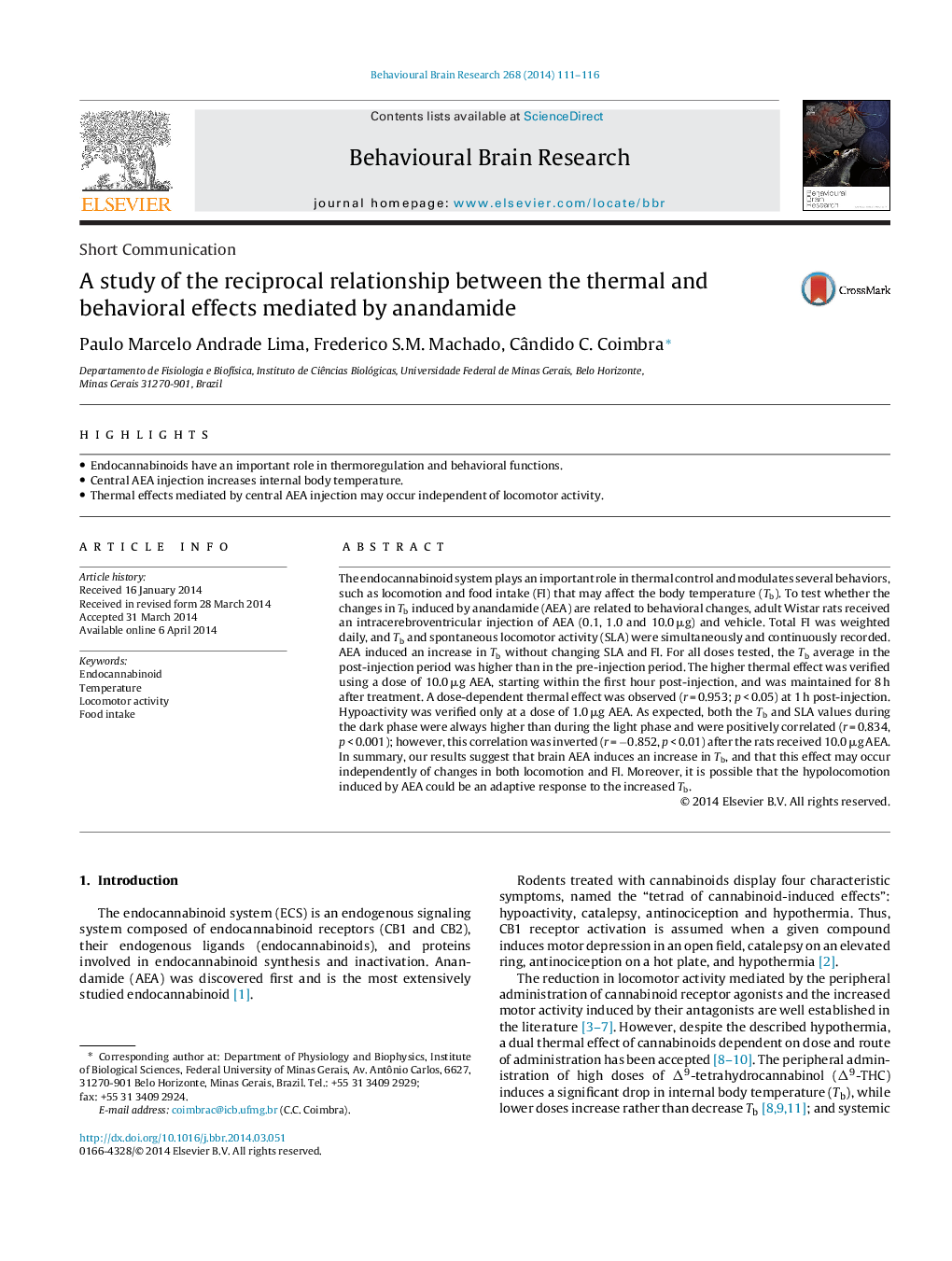| Article ID | Journal | Published Year | Pages | File Type |
|---|---|---|---|---|
| 6258126 | Behavioural Brain Research | 2014 | 6 Pages |
â¢Endocannabinoids have an important role in thermoregulation and behavioral functions.â¢Central AEA injection increases internal body temperature.â¢Thermal effects mediated by central AEA injection may occur independent of locomotor activity.
The endocannabinoid system plays an important role in thermal control and modulates several behaviors, such as locomotion and food intake (FI) that may affect the body temperature (Tb). To test whether the changes in Tb induced by anandamide (AEA) are related to behavioral changes, adult Wistar rats received an intracerebroventricular injection of AEA (0.1, 1.0 and 10.0 μg) and vehicle. Total FI was weighted daily, and Tb and spontaneous locomotor activity (SLA) were simultaneously and continuously recorded. AEA induced an increase in Tb without changing SLA and FI. For all doses tested, the Tb average in the post-injection period was higher than in the pre-injection period. The higher thermal effect was verified using a dose of 10.0 μg AEA, starting within the first hour post-injection, and was maintained for 8 h after treatment. A dose-dependent thermal effect was observed (r = 0.953; p < 0.05) at 1 h post-injection. Hypoactivity was verified only at a dose of 1.0 μg AEA. As expected, both the Tb and SLA values during the dark phase were always higher than during the light phase and were positively correlated (r = 0.834, p < 0.001); however, this correlation was inverted (r = â0.852, p < 0.01) after the rats received 10.0 μg AEA. In summary, our results suggest that brain AEA induces an increase in Tb, and that this effect may occur independently of changes in both locomotion and FI. Moreover, it is possible that the hypolocomotion induced by AEA could be an adaptive response to the increased Tb.
